When it comes to web development, PHP frameworks are the utilized solutions. Despite the fact that there are other PHP frameworks. Symfony and Laravel are the best options. They’re popular for a multitude of reasons, including their great code, which allows developers to create incredible applications.
Create a web application to bring your brand’s identity to the desktops of your target audience. You should select Laravel or Symfony in this case, based on your company goals. Both PHP frameworks have advantages and capabilities that you may utilize in your web projects.
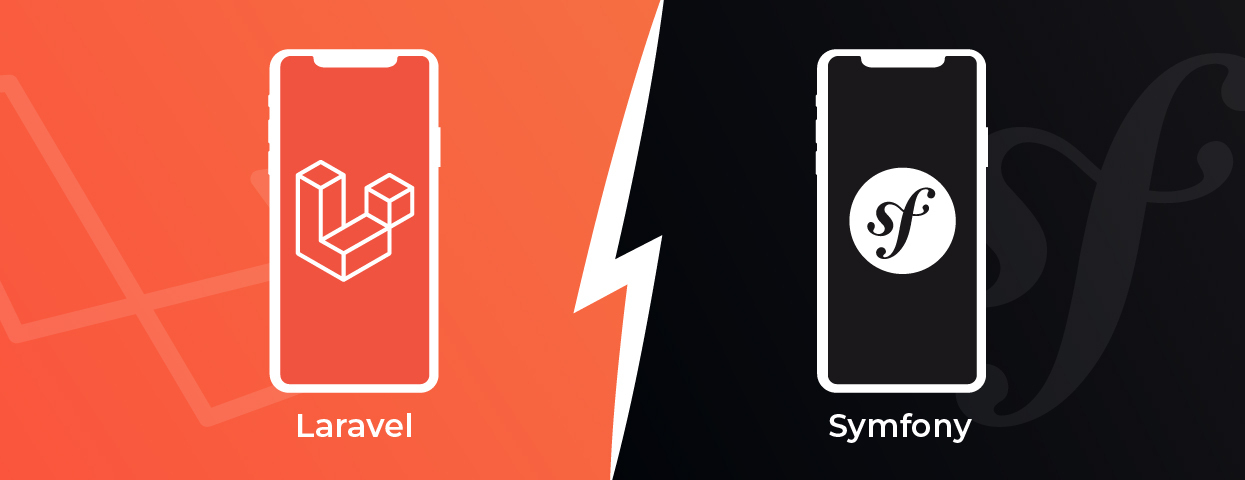
For some years, Symfony and Laravel have been at the top of the custom PHP web development list. They can assist web developers enhance their efficiency by streamlining procedures and optimizing code.
Developers favor Laravel because of its quick development, performance, and high speed. Symfony, on the other hand, constructs complicated and large-scale web applications. We’ve gone through every facet of each framework’s capabilities, as well as its advantages and disadvantages.
What is Laravel?
Laravel was built by Taylor Otwell in June 2011 as an alternative to CodeIgniter. Laravel is a well-known MIT-licensed open-source (free) PHP web framework.
Laravel has a modular packaging system and also Composer, a Laravel-specific PHP language dependency management.There are a variety of techniques for accessing relational databases. Also, features for database administration and application deployment.
As previously said, it is built with the MVC framework. It makes designing and managing online applications much easier. It also comes with a number of helpful built-in capabilities, such as authentication, sessions, routing, and mail, to mention a few. Laravel is an extremely useful aspect of the framework. All developers ought to be familiar with and able to utilize when all of these great features and capabilities are combined.
What is Symfony?
Symfony is a PHP framework for web development that also provides reusable PHP components. Fabien Potencier designed Symfony in October 2005 under the MIT license. Because Symfony is open-source, it matches the specific needs of each coder by developing any needed module. That is precisely how it operates.
The MVC (Model View Controller) model is used to make the most of the PHP Framework Symfony. It is not, however, a genuine MVC framework like Laravel. The Symfony Framework was created with the goal of eliminating coding challenges. Also, saving time throughout the web development process. It is based on the idea that users should be allowed to create software that meets their own needs. The availability of publicly accessible framework components and high-end setups makes developers’ jobs simpler. The Symfony Framework acts as the backbone of your application while using PHP5. It establishes your product’s general design and structure. It also includes 50 stand-alone components for use in applications.
Usage and Market Share
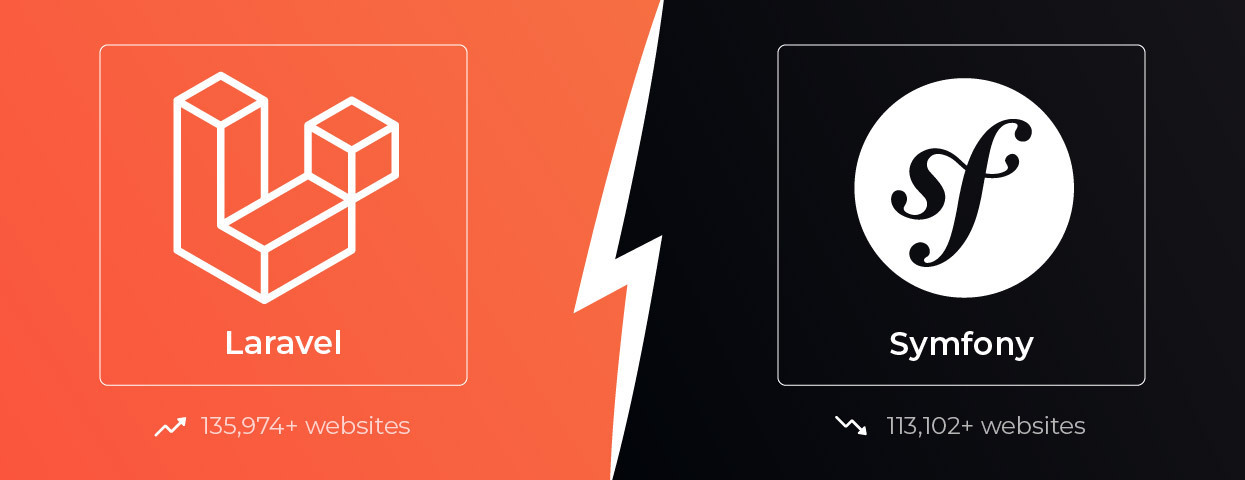
Laravel
- 0.89 percent of the top one million websites on the internet are built using Laravel. ● The PHP laravel framework has created over 1,35,974 websites.
- There are 100,173 distinct domains in Laravel.
- The IT industry accounts for 5.62 percent of all industries that use Laravel. Followed by Science & Education at 3.13 percent, Art & Entertainment at 2.31 percent. Also, Law & Government at 2.10 percent, and every other business counts in others.
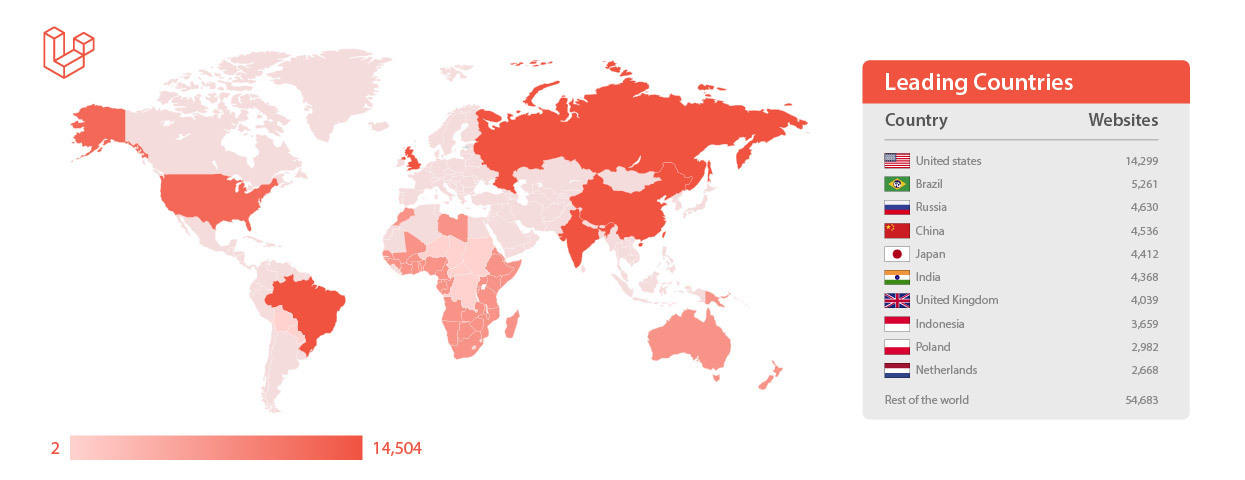
Symfony
- Web application framework has a 0.22 percent market share.
- The current status of Symfony website development is 11,654.
- There are 7,802 distinct domains in Symfony.
- As you can see in the pie chart below, the Science & Education industry accounts for 9.04 percent of all Symfony users, followed by the IT business at 3.65 percent, Vehicles at 3.61 percent, and Health at 2.51 percent, with every other industry falling into the “others” column.
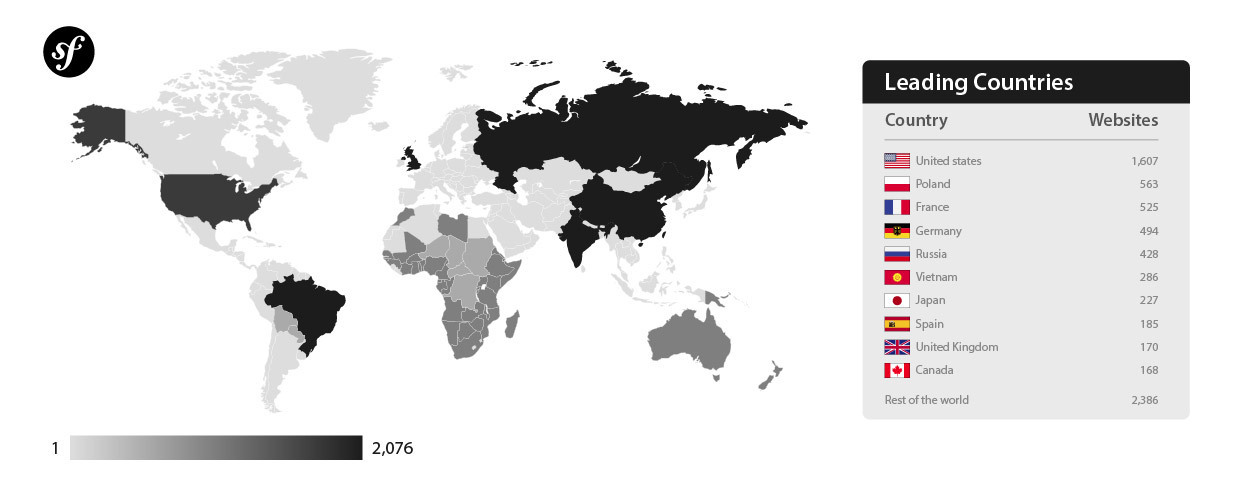
Speed and Performance
The funny thing about Laravel and Symfony’s speed and efficiency is that Laravel is made of Symfony components. However, the entertaining truth doesn’t end there: when Symfony caches source code, Laravel runs faster. According to ThinkMobiles test results, websites built using Laravel should load in 60 milliseconds. Whereas, websites built with Symfony should load in 250 milliseconds.
Simple one-page apps for each framework, each of which launches and does a single activity.
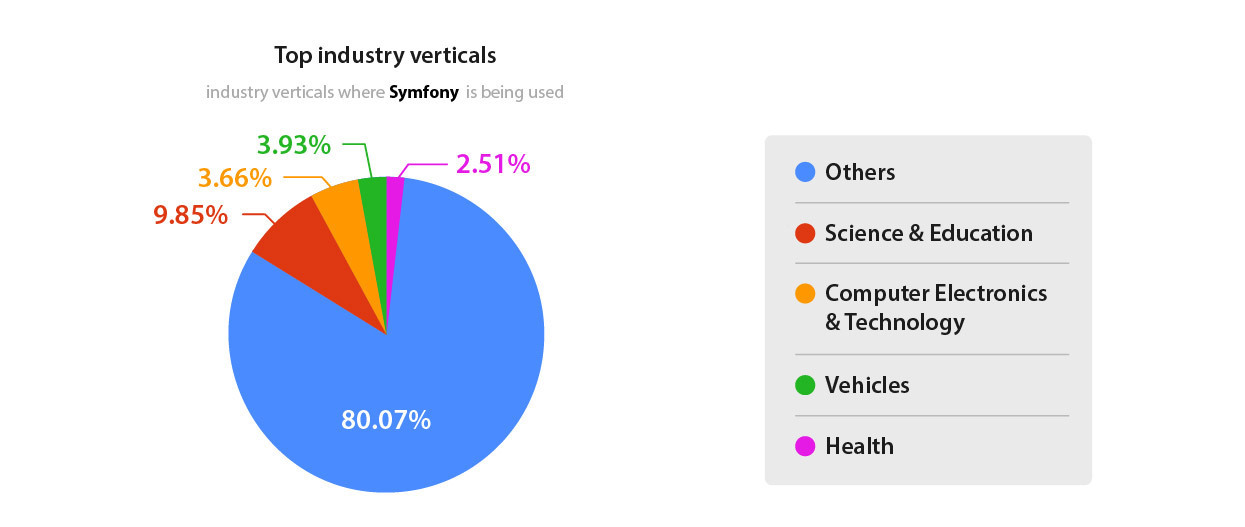
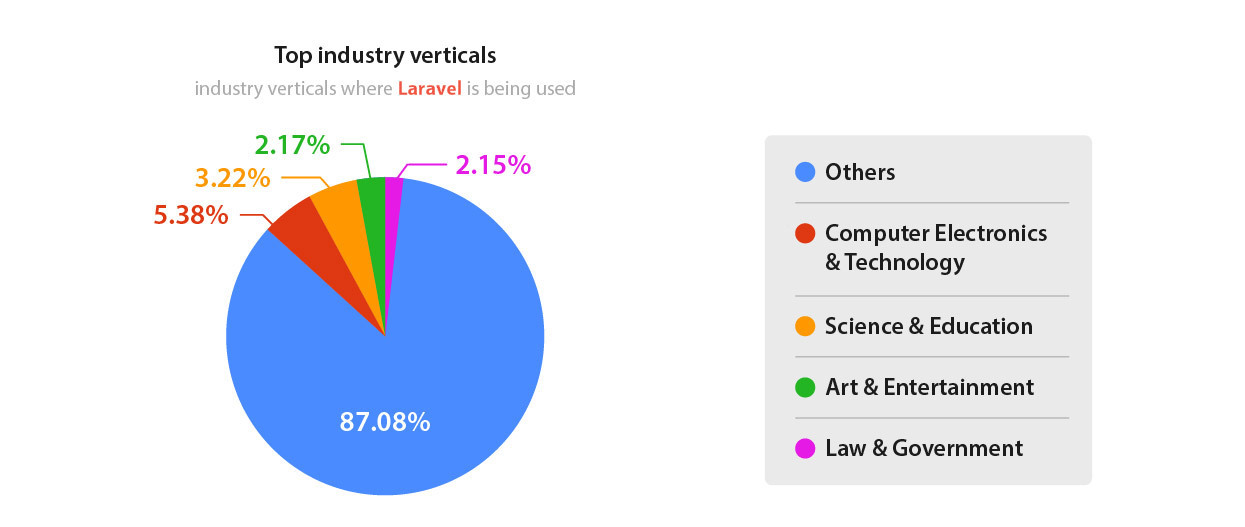
Data Modelling
Laravel demands a more in-depth knowledge of SQL. Despite the fact that each call requires the creation of a library function, Symfony does not need this. If you’re going to use a complicated database structure in your application, you’ll need to use a lot of library functions.
On the other hand, it has a way of binding your application to the conceptual model of your database. Changing the name of a column is likely to generate modifications across the whole program. The mapper design is used by Doctrine and Symfony to allow you to isolate your database schema from your business objects and business logic.
Server Requirements
Laravel
- PHP >= 5.6.4
- OpenSSL PHP Extension
- Tokenizer PHP Extension
- XML PHP Extension
- PDO PHP Extension
- Mbstring PHP Extension
- Composer
The simplest and quickest way to install Laravel is with Composer, which involves first downloading Laravel.
Symfony
- PHP >= 5.5.9
- ctype Extension
- JSON Extension
- Your php.ini needs to have the date.timezone setting
Both Laravel and Symfony offer globalization and translations. Although Laravel has localization tools, Symfony has a translator configuration option. Laravel maintains localization data in PHP and JSON files, but Symfony supports a variety of translation formats including PHP, Qt,.po, mo, JSON, CSV, INI, and more. It also supports more common formats such as XLIFF and gettext.
Who do you think will come out on top?
Both Laravel and Symfony, as previously said, are frameworks with a vast amount of functionalities. Both are free and also used for a wide range of web development tasks. Because of its speed and performance, Laravel is a popular choice. You may quickly and simply create complicated, large-scale internet applications with Symfony.
Contact one of the competent Laravel development companies if you want speedy web development, performance, and speed. On the other hand, if you want to construct complicated, large-scale web apps. Symfony development services are the way to go.
If you’re looking for a web app development company with a proven track record of Laravel developers for hire, look no further than WebOccult Technologies. Get in touch with our team of Laravel experts to build an agile Laravel-based web app that stands the test of time.








